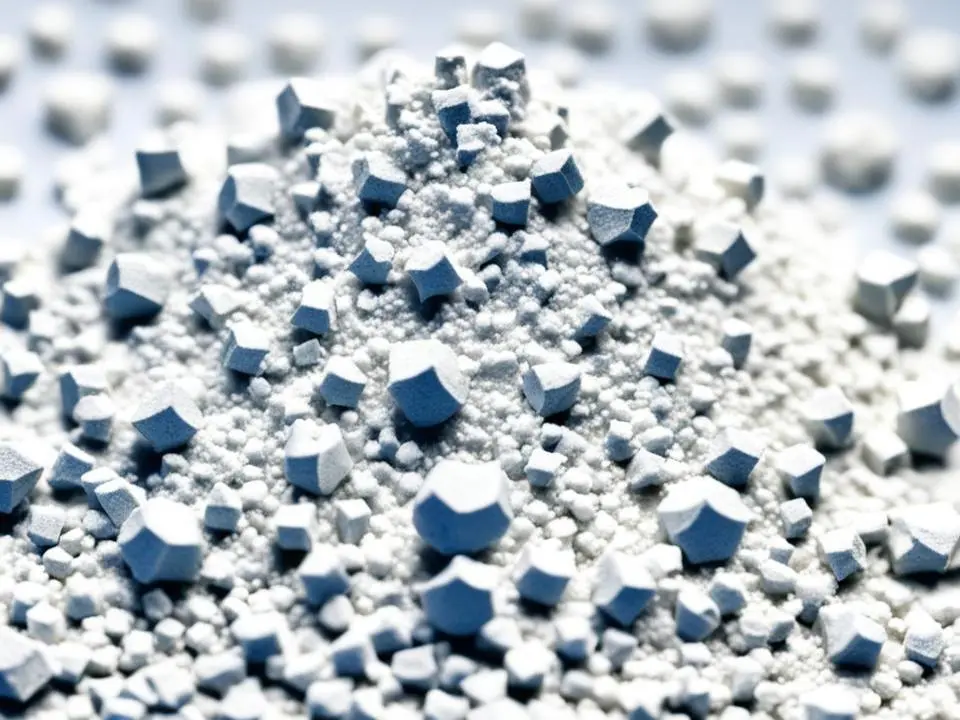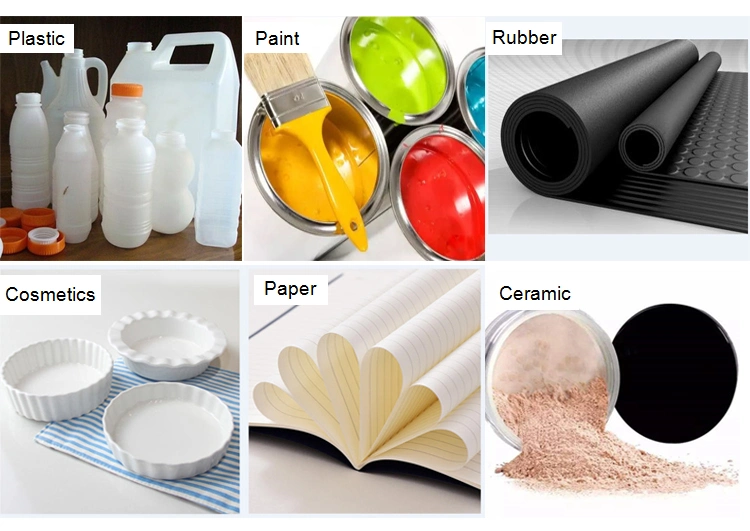

Connect With Our Team

Talc powder is a key ingredient in many industries. It's a natural mineral with special properties. These make it useful in many ways, improving product quality and manufacturing processes. This article will look at how talc powder is used in different sectors, from plastics and paints to paper and cosmetics.
Talc is a soft and versatile mineral that has been crucial in many industries. It's known for being soft, white, and inert. These qualities make it a key ingredient in many products. Talc powder is especially valued for improving processes, making things smoother, stronger, and better at keeping heat and electricity in.

Talc is a soft, versatile mineral that has become vital to many industries. It is soft, white, and inert. It is on these bases that it makes its way into many products. The talc powder is particularly valued for improving processes, making things smoother, stronger, and better at keeping in heat and electricity.
Talc is a hydrated magnesium silicate mineral that is very soft—1 on the Mohs scale. Because it's so soft, it's excellent as a filler, strengthening, and lubricant in many industries; it's also white and inert to chemical reaction, so it's become almost a go-to material for many products.
Softness: It has a very low Mohs hardness of 1, making it among the softest minerals on Earth.
Whiteness: High-grade talc powder has high whiteness, which is highly demanded in many uses.
Chemical inertness: talc is chemically inert, and thus it can be used in many products without changing the nature of these products.
Talc powder is a versatile mineral widely used across various industries due to its unique physical and chemical properties. From plastics and polymers to pharmaceuticals, talc plays a critical role in enhancing product performance, improving manufacturing processes, and adding value to end products. Here’s an in-depth look at the industrial applications of talc powder in several key sectors.

Talc powder is extensively used as a filler in the plastics and polymer industry. It improves the stiffness, dimensional stability, and heat resistance of thermoplastics, making it a vital component in automotive parts, household appliances, and packaging materials. Talc’s platy structure enhances the mechanical properties of plastics, leading to products that are more durable and resistant to wear and tear.
In the paints and coatings industry, talc powder serves as an extender and matting agent. It enhances the paint’s opacity, reduces gloss, and improves the smoothness of the finish. Talc also helps in controlling the viscosity of paint, making it easier to apply. Its resistance to moisture and chemicals makes it an ideal choice for protective coatings in industrial and architectural applications.
Talc powder is a critical ingredient in the paper industry, where it is used as a filler and coating agent. It improves the brightness, opacity, and smoothness of paper, enhancing print quality and reducing ink consumption. Additionally, talc’s hydrophobic nature helps to increase the paper’s resistance to moisture, making it suitable for various paper products, including magazines, catalogs, and packaging materials.
In ceramics, talc is used as a flux to reduce the firing temperature, thereby saving energy and reducing costs. Talc improves the strength and durability of ceramic products while enhancing their thermal shock resistance. It is commonly used in the production of tiles, sanitary ware, and tableware, contributing to their smooth surface finish and attractive appearance.
Talc powder plays a crucial role in the rubber industry as a reinforcing filler. It enhances the tensile strength and elasticity of rubber, making it suitable for applications such as tires, hoses, and seals. Talc also acts as a processing aid, improving the flow of rubber compounds and reducing processing time. Its ability to absorb moisture and prevent sticking makes it ideal for use in rubber gloves and other products.
Talc is a well-known ingredient in the cosmetics and personal care industry, where it is valued for its softness, absorbency, and smooth texture. It is used in products such as baby powder, face powders, and body powders to absorb moisture, reduce friction, and provide a silky feel. Talc also serves as a filler in makeup products, helping to improve their texture and coverage.
In the pharmaceutical industry, talc powder is used as an excipient in tablet formulations. It acts as a glidant, improving the flow properties of powder blends during tablet manufacturing. Talc also serves as a lubricant, preventing tablets from sticking to the equipment during production. Its inert nature and fine particle size make it a safe and effective ingredient in various medicinal products.
Talc powder is used in agriculture as a carrier for pesticides and insecticides. It ensures even distribution of active ingredients and improves their adherence to plant surfaces. Talc is also used in seed coatings to enhance seed flow during planting and to protect seeds from pests and diseases. Its role in soil conditioning and as an anti-caking agent in fertilizers further highlights its importance in agriculture.
In the food industry, talc powder is used as an anti-caking agent in powdered foods such as spices, salts, and sweeteners. It prevents clumping and ensures that the product flows freely during processing and packaging. Talc is also used in food packaging materials to improve their barrier properties and to protect food from moisture and contamination.
Talc powder is used in the textile industry as a lubricant in the spinning process. It reduces friction between fibers and machinery, preventing fiber breakage and improving the quality of the yarn. Talc is also used in the finishing of fabrics to impart softness, improve texture, and enhance the durability of the material. Its ability to absorb moisture makes it useful in the production of moisture-wicking fabrics.
In the construction industry, talc powder is used as a filler in various building materials, including paints, coatings, adhesives, and sealants. It improves the workability and strength of these materials, making them easier to apply and more durable. Talc is also used in drywall, where it enhances the smoothness and finish of the surface. Its thermal and sound-insulating properties make it valuable in construction applications where energy efficiency and comfort are priorities.
Talc powder is known for its softness, whiteness, and inertness. These qualities make it a key material in many industries. It's used as a filler, reinforcing agent, and lubricant. It improves smoothness, strength, and insulation.
Talc powder is used in many industries like plastics, paints, paper, ceramics, rubber, food, pharmaceuticals, and cosmetics. It helps improve product quality and efficiency.
In plastics, talc powder boosts mechanical properties, thermal stability, and size stability. This makes the final products better.
In paints and coatings, talc powder makes products smoother, more opaque, and durable. It's a crucial material in this field.
In paper production, talc powder is a filler and coating agent. It enhances the brightness, opacity, and printability of paper.
Talc powder is an essential mineral with diverse applications across multiple industries. Its unique properties, such as softness, chemical inertness, and platy structure, make it a valuable ingredient in products ranging from plastics and ceramics to pharmaceuticals and cosmetics. Understanding the various industrial uses of talc can help manufacturers optimize their processes, improve product quality, and reduce costs, making talc a key component in modern industrial applications.
Whatsapp Chatx
Hi! Click one of our representatives below to chat on WhatsApp or send us email to [email protected] [email protected]
 |
Mr. Vivek Rajpara +91 75750 53447 |
 |
Mr. Nikunj Vadaliya +91 98240 66283 |
